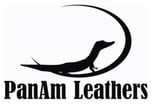Saltwater crocodile eggs are harvested in northern Australia and the crocodiles hatched are farmed and sold for exotic leather crocodile skins.
Researcher Sally Isberg says the industry is trying to work out how to genetically regulate the growth and skin quality of captive crocodiles.
"The industry benefits to come out of this are going to be reducing growth variability so we can get animals out quicker and also increasing survivability, so those animals that we hatch, more of them will survive until harvest," she said.
Northern Territory Primary Industries Minister Kon Vatskalis told delegates the the Territory is a leader in exploiting crocodiles for tourism, meat and skins.
"We are the supplier of some most perfect skins to the world," he said.
"That is why international companies come to the Territory, specifically for our products, and we want to improve our products."
But a Darwin scientist says the push to create a better domesticated crocodile could threaten the species in the wild.
Professor Grahame Webb says that, while the aim is possible, it could threaten efforts to preserve the creatures in their natural habitat.
"To maintain a position in the international market, with the highest level of fashion products, we need to have the best possible skins," he said.
"But we also need to have, from a conservation point of view, the reliance on eggs that come in from landowners and from the wild so they have an incentive to put up with crocodiles.
"In Thailand, where the whole population of crocs is in captive breeding, the wild population is extinct," Professor Webb said.


